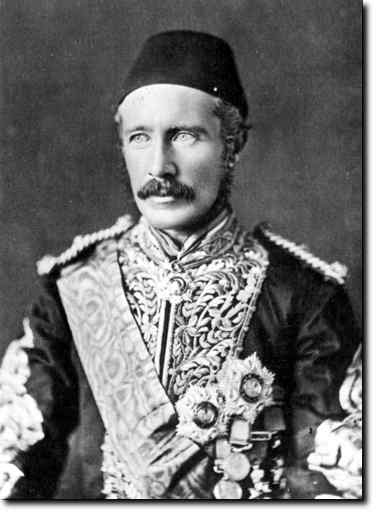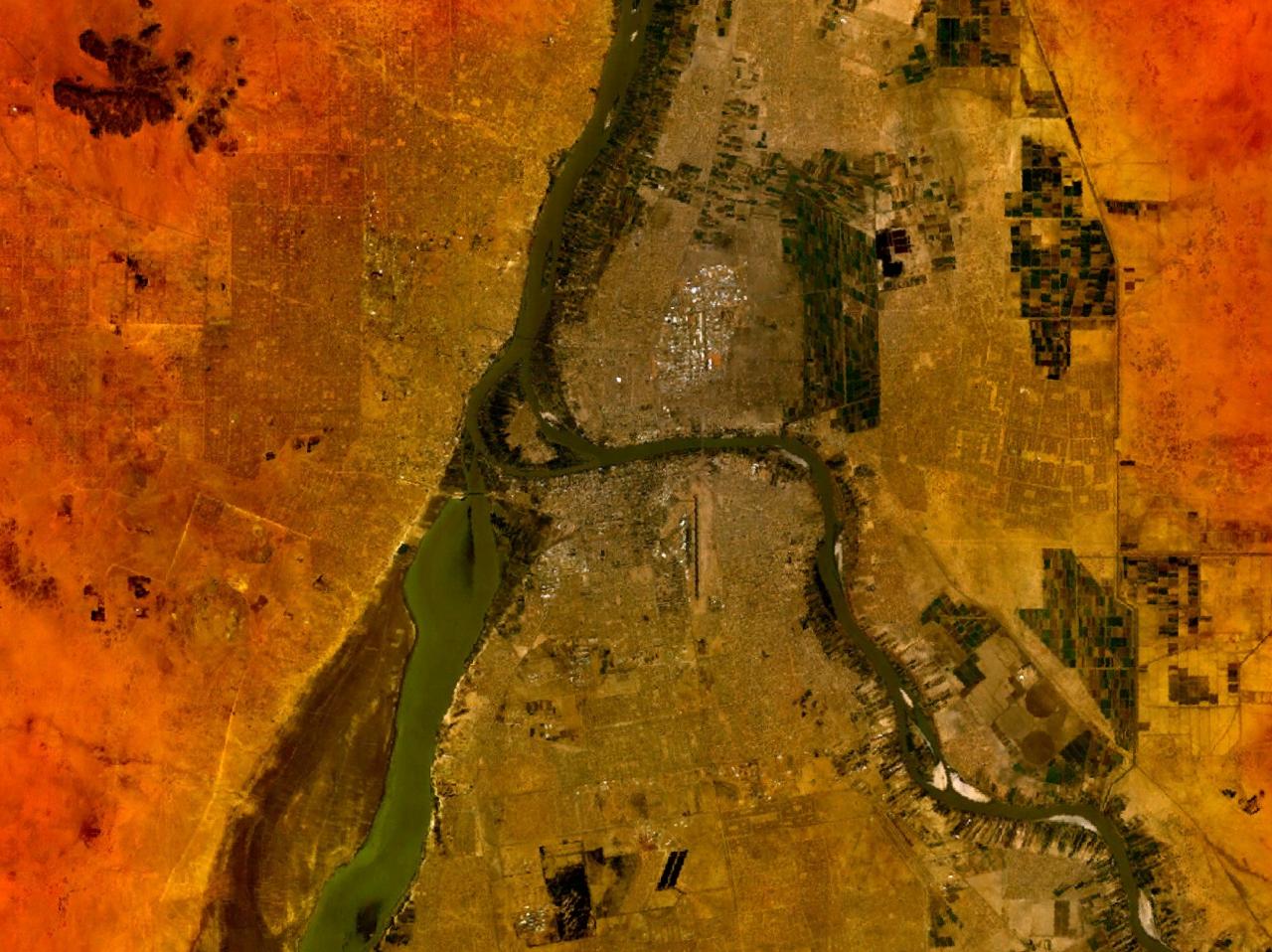|
Battle Of Kassala
The Battle of Kassala was fought on July 17, 1894, between Italian colonial troops and Mahdist Sudanese forces. Prelude Governor Oreste Baratieri sought to capture Kassala, to forestall Mahdist attacks on Eritrea. In July 1894, Baratieri saw his moment when the Atbarah River started to rise, and marched his small army of ''"''56 Italian officers, 41 NCOs and 2510 native soldiers led by 16 Bukbashis''"'' towards Kassala. Battle An account of the capture of Kassala was published in ''The New York Times'' on July 20, 1894: ''"'' Rome, July 19.- ...The attack upon the earthworks of the Mahdists was at once ordered and a fiercely contested battle ensued. The Mahdists fought desperately, but were finally driven from their position, leaving hundreds of dead and wounded in and about the intrenchments. Being hotly pursued, the Mahdists scattered under a continuous fire, and many of them in their efforts to escape plunged into the River Adbara, hoping to reach the other side. ...Hun ... [...More Info...] [...Related Items...] OR: [Wikipedia] [Google] [Baidu] |
Mahdist War
The Mahdist War (; 1881–1899) was fought between the Mahdist Sudanese, led by Muhammad Ahmad bin Abdullah, who had proclaimed himself the "Mahdi" of Islam (the "Guided One"), and the forces of the Khedivate of Egypt, initially, and later the forces of Britain. After four years, the Mahdist rebels overthrew the Ottoman-Egyptian administration with the fall of Khartoum and gained control over Sudan. The Mahdist State launched several unsuccessful invasions of their neighbours, expanding the scale of the conflict to also include the Italian Empire, the Congo Free State and the Ethiopian Empire. They also faced significant internal rebellion. Anglo-Egyptian forces reconquered Sudan in 1898 and the Mahdist state collapsed following defeat at the battle of Omdurman. The last organised resistance from the Mahdists ended the next year, leading to the creation of Anglo-Egyptian Sudan (1899–1956), a ''de jure'' condominium of the British Empire, and the Kingdom of Egypt, in which ... [...More Info...] [...Related Items...] OR: [Wikipedia] [Google] [Baidu] |
Battles Involving Sudan
A battle is an occurrence of combat in warfare between opposing military units of any number or size. A war usually consists of multiple battles. In general, a battle is a military engagement that is well defined in duration, area, and force commitment. An engagement with only limited commitment between the forces and without decisive results is sometimes called a skirmish. The word "battle" can also be used infrequently to refer to an entire operational campaign, although this usage greatly diverges from its conventional or customary meaning. Generally, the word "battle" is used for such campaigns if referring to a protracted combat encounter in which either one or both of the combatants had the same methods, resources, and strategic objectives throughout the encounter. Some prominent examples of this would be the Battle of the Atlantic, Battle of Britain, and the Battle of France, all in World War II. Wars and military campaigns are guided by military strategy, whereas batt ... [...More Info...] [...Related Items...] OR: [Wikipedia] [Google] [Baidu] |
1894 In Sudan
Events January * January 4 – A military alliance is established between the French Third Republic and the Russian Empire. * January 7 – William Kennedy Dickson receives a patent for motion picture film in the United States. * January 9 – New England Telephone and Telegraph installs the first battery-operated telephone switchboard, in Lexington, Massachusetts. February * February 12 – French anarchist Émile Henry sets off a bomb in a Paris café, killing one person and wounding twenty. * February 15 ** In Korea, peasant unrest erupts in the Donghak Peasant Revolution, a massive revolt of followers of the Donghak movement. Both China and Japan send military forces, claiming to come to the ruling Joseon dynasty government's aid. ** French anarchist Martial Bourdin dies of an accidental detonation of his own bomb, next to the Royal Observatory, Greenwich, in London, England. March * March 1 – The Local Government Act (coming into effect D ... [...More Info...] [...Related Items...] OR: [Wikipedia] [Google] [Baidu] |
Egypt
Egypt ( , ), officially the Arab Republic of Egypt, is a country spanning the Northeast Africa, northeast corner of Africa and Western Asia, southwest corner of Asia via the Sinai Peninsula. It is bordered by the Mediterranean Sea to northern coast of Egypt, the north, the Gaza Strip of Palestine and Israel to Egypt–Israel barrier, the northeast, the Red Sea to the east, Sudan to Egypt–Sudan border, the south, and Libya to Egypt–Libya border, the west; the Gulf of Aqaba in the northeast separates Egypt from Jordan and Saudi Arabia. Cairo is the capital, list of cities and towns in Egypt, largest city, and leading cultural center, while Alexandria is the second-largest city and an important hub of industry and tourism. With over 109 million inhabitants, Egypt is the List of African countries by population, third-most populous country in Africa and List of countries and dependencies by population, 15th-most populated in the world. Egypt has one of the longest histories o ... [...More Info...] [...Related Items...] OR: [Wikipedia] [Google] [Baidu] |
Kingdom Of Italy (1861–1946)
The Kingdom of Italy (, ) was a unitary state that existed from 17 March 1861, when Victor Emmanuel II of Kingdom of Sardinia, Sardinia was proclamation of the Kingdom of Italy, proclaimed King of Italy, until 10 June 1946, when the monarchy was abolished, following civil discontent that led to an 1946 Italian institutional referendum, institutional referendum on 2 June 1946. This resulted in a modern Italian Republic. The kingdom was established through the unification of several states over a decades-long process, called the . That process was influenced by the House of Savoy, Savoy-led Kingdom of Sardinia (1720–1861), Kingdom of Sardinia, which was one of Italy's legal Succession of states, predecessor states. In 1866, Italy Third Italian War of Independence, declared war on Austrian Empire, Austria in Italo-Prussian Alliance, alliance with Kingdom of Prussia, Prussia and, upon its victory, received the region of Veneto. Italian troops Capture of Rome, entered Rome in 1870, ... [...More Info...] [...Related Items...] OR: [Wikipedia] [Google] [Baidu] |
The New York Times
''The New York Times'' (''NYT'') is an American daily newspaper based in New York City. ''The New York Times'' covers domestic, national, and international news, and publishes opinion pieces, investigative reports, and reviews. As one of the longest-running newspapers in the United States, the ''Times'' serves as one of the country's Newspaper of record, newspapers of record. , ''The New York Times'' had 9.13 million total and 8.83 million online subscribers, both by significant margins the List of newspapers in the United States, highest numbers for any newspaper in the United States; the total also included 296,330 print subscribers, making the ''Times'' the second-largest newspaper by print circulation in the United States, following ''The Wall Street Journal'', also based in New York City. ''The New York Times'' is published by the New York Times Company; since 1896, the company has been chaired by the Ochs-Sulzberger family, whose current chairman and the paper's publ ... [...More Info...] [...Related Items...] OR: [Wikipedia] [Google] [Baidu] |
Atbarah River
The Atbarah River (; transliterated: Nahr 'Atbarah), also referred to as the Red Nile and / or Black Nile, is a river in northeast Africa. It rises in northwest Ethiopia, approximately 50 km north of Lake Tana and 30 km west of Gondar. It then flows about 805 km (500 mi) to the Nile in north-central Sudan, joining it at the city of Atbarah (). The river's tributary, the Tekezé (Setit) River, is perhaps the true upper course of the Atbarah, as the Tekezé follows the longer course prior to the confluence of the two rivers (at 14° 10' N, 36° E) in northeastern Sudan. The Atbarah is the last tributary of the Nile before it reaches the Mediterranean. For much of the year, it is little more than a stream. However, during the rainy season (generally July to October), the Atbarah rises some 18 ft (5 m) above its normal level. At this time, it forms a formidable barrier between the northern and central districts of the Amhara Region of Ethiopia. Besides ... [...More Info...] [...Related Items...] OR: [Wikipedia] [Google] [Baidu] |
Kassala
Kassala (, ) is the capital of the state of Kassala (state), Kassala in eastern Sudan. In 2003 its population was recorded to be 530,950. Built on the banks of the Mareb River, Gash River, it is a market city and is famous for its fruit gardens. Many of its inhabitants are from the Hadendoa, Hadendawa sub-tribe of the Beja people, Beja ethnic group. The city was formerly a railroad hub, however, as of 2006 there was no operational railway station in Kassala and much of the track leading to and from the city has been salvaged or fallen into disrepair. Kassala's location along the main Khartoum-Port Sudan highway makes it an important trade center. History In 1834, the Egyptian Army established Kassala as a garrison town following its conquest of Sudan in 1821. When the Mahdist Sudan, Mahdist state was established, the Egyptian garrison in Kassala found itself besieged by Mahdist forces. Under the terms of the 1884 Hewett Treaty, Abyssinian forces led by Ras Alula attempted to ... [...More Info...] [...Related Items...] OR: [Wikipedia] [Google] [Baidu] |
Mahdist War
The Mahdist War (; 1881–1899) was fought between the Mahdist Sudanese, led by Muhammad Ahmad bin Abdullah, who had proclaimed himself the "Mahdi" of Islam (the "Guided One"), and the forces of the Khedivate of Egypt, initially, and later the forces of Britain. After four years, the Mahdist rebels overthrew the Ottoman-Egyptian administration with the fall of Khartoum and gained control over Sudan. The Mahdist State launched several unsuccessful invasions of their neighbours, expanding the scale of the conflict to also include the Italian Empire, the Congo Free State and the Ethiopian Empire. They also faced significant internal rebellion. Anglo-Egyptian forces reconquered Sudan in 1898 and the Mahdist state collapsed following defeat at the battle of Omdurman. The last organised resistance from the Mahdists ended the next year, leading to the creation of Anglo-Egyptian Sudan (1899–1956), a ''de jure'' condominium of the British Empire, and the Kingdom of Egypt, in which ... [...More Info...] [...Related Items...] OR: [Wikipedia] [Google] [Baidu] |





